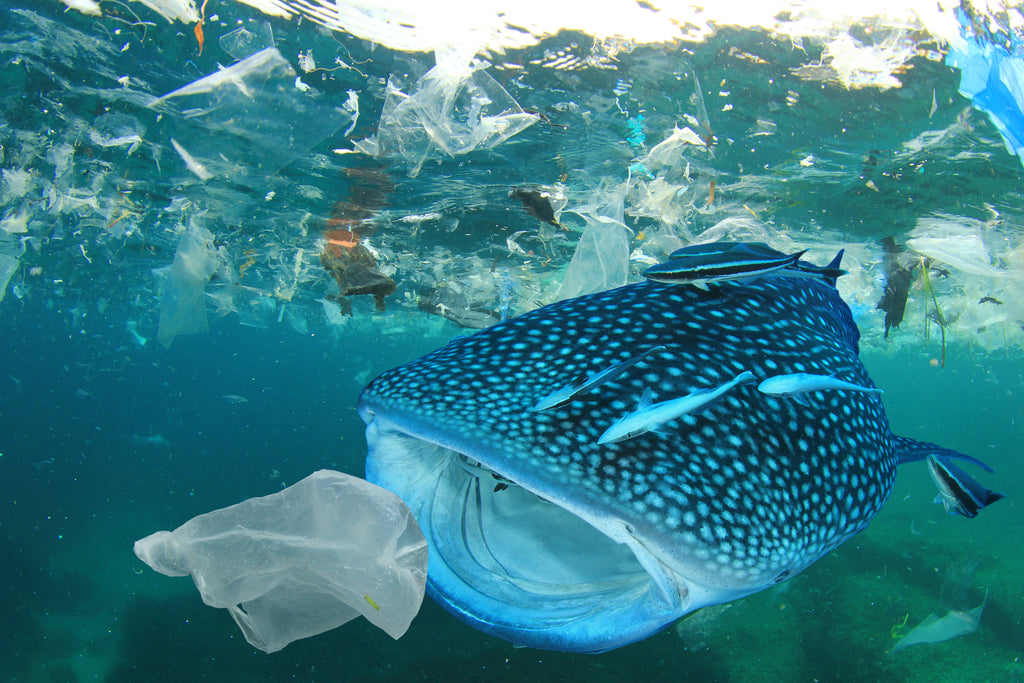The New Wave of Ocean Pollution: PPE

You’ve likely heard the silver lining of COVID-19 - due to global mandatory lockdowns, the Earth is healing. Our waterways and air are cleaner, smog has dissipated, and wildlife has returned to areas that have been desolate for decades. Unfortunately for our planet, however, there are far-reaching negative implications of the current crisis as well.
Personal protective equipment (known as PPE) usage has skyrocketed to meet the demands of new public safety mandates. Masks are now a requirement for many of the world’s citizens to frequent stores, restaurants, and other public places.
Disposable masks have become a popular option, despite the known negative impact that it leaves on our Earth. The Environment, Science & Technology journal estimates that we throw away about 129 billion masks every month; with a majority of these masks being improperly disposed of and ultimately ending up in our oceans.
OCEAN POLLUTION
“Conservationists have warned that the coronavirus pandemic could spark a surge in ocean pollution – adding to a glut of plastic waste that already threatens marine life – after finding disposable masks floating like jellyfish and waterlogged latex gloves scattered across seabeds.” reports The Guardian in a recent article surrounding ocean pollution and COVID-19.
As we know from the video of the poor sea tortoise with a plastic straw jammed in its snout, plastic waste tends to have a devastating effect on marine life. Sea turtles often mistake items like plastic bags and balloons for food - indicating the same is likely true for masks.

FAR-REACHING NEGATIVE EFFECTS
Certain members of the plastics industry are utilizing this situation as leverage to roll back hard-won environmental measures on single-use plastics. This is not to mention that the pandemic has diverted government attention away from critical green issues, with the United Nation’s COP26 climate change conference postponed past its original November 2020 date.
In many regions of the US (and other countries), environmentally-friendly recycling programs have come to a screeching halt; many of you have likely been turned away when trying to bring your reusable shopping bag or return bottles with a CRV.
We must take responsibility as individuals to keep our planet healthy. Humans generate 8 million tons of plastic waste every year - the equivalent of one full dump truck a minute going into the ocean. The solution doesn’t lie with one person - but with all of us working together.
DISPOSABLE FACE MASKS
It is safe to assume that face mask requirements aren’t going anywhere for quite some time, and as such, it seems prudent to invest in a high-quality reusable mask. Not only to do one’s part in helping the environment but to eliminate wasteful spending on mask after mask.
Surgical masks are typically made by inserting a laying of polypropylene (plastic) between two layers of fibers. Essentially, standard disposable masks are a cheap plastic sheet that covers your mouth and nose.
Polypropylene can have a lifespan of 450 years before it is broken down, which means these disposable masks are an ecological calamity given their lasting environmental effects on our planet.
What’s more, the New England Journal of Medicine recently published a study indicating that COVID may survive longer on plastic versus other materials, such as copper, cardboard, and stainless steel.
HEMP BLACK REUSABLE fusion / FACE MASK
Our face mask is a cloth covering, which has been strategically engineered through 3D multilayer technology that produces zero waste and is 100% made in the USA. This mask features a copper-infused antimicrobial exterior and an odor-neutralizing HEMP BLACK / element interior, making it more durable and sustainable than other cloth options.
To bring awareness to the growing issue of waste in the ocean, particularly from PPE, we are releasing two new ocean-inspired masks (Deep Sea and Bondi Blue) and partnering with Birch Aquarium.

Hemp Black is donating 1.5% of proceeds from every Bondi Blue and Deep Sea fusion / FACE MASK sold to Birch Aquarium at Scripps Institution of Oceanography.
The Birch Aquarium at Scripps is a nonprofit that provides ocean science education through creative exhibits, programs, and activities designed to use critical thinking, and to make science relevant to our daily lives. With nearly half a million visitors annually, including 50,000+ school children, Birch Aquarium is the major center for engaging the public in learning about the research conducted at Scripps.
Scripps Institution of Oceanography at UC San Diego is one of the most important centers for global earth science research and education in the world. Scripps scientists work to understand and protect the planet by investigating our oceans, Earth, and atmosphere to find solutions to our greatest environmental challenges. Scripps leads research in climate change impacts and adaptation, resilience to hazards, conservation and biodiversity, oceans and human health, national security, and innovative technology to observe the planet.




